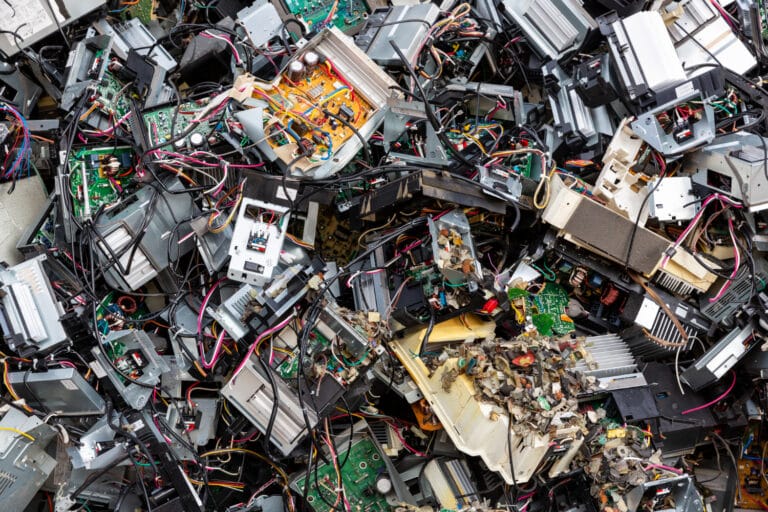Managing IT equipment disposal effectively is a significant concern for many businesses today. This task isn’t just about getting rid of old computers and other outdated gear; it’s about doing so in a manner that protects data and the environment. Proper disposal prevents unwanted data breaches and helps adhere to environmental regulations. As businesses upgrade their technology, they frequently face challenges in figuring out the best way to dispose of old equipment without running into legal or ethical issues.
In places like Augusta, Columbus, Macon, and Savannah, businesses encounter unique obstacles when handling IT disposal. Understanding local regulations and finding the right services can be tricky, yet crucial for compliance and sustainability. Companies in these areas need to focus on practical disposal techniques while navigating specific local legalities and environmental concerns. In this context, effective disposal strategies can indeed make a meaningful difference.
Identifying IT Equipment for Disposal
Before tackling the disposal process, businesses need to identify which items require attention. IT equipment varies widely, from extensive data centers to small gadgets like smartphones. Typically, anything that stores data or contains hazardous materials necessitates careful disposal. Key items to watch for include:
– Computers and laptops
– Servers and networking gear
– Smartphones and tablets
– Printers and copiers
– Data storage devices
Creating a comprehensive inventory is an essential step. This list aids in understanding what equipment is present and what needs to go. Categorizing assets based on their status, such as outdated, broken, or redundant, can streamline the disposal process. Gathering this information provides clarity and helps in making informed decisions regarding recycling, resale, or donation possibilities.
Data Security Measures
Protecting sensitive information should be a primary focus when disposing of IT assets. Ensuring all data is securely erased from devices is non-negotiable. Several straightforward steps can ensure safe data removal:
1. Use specialized software to permanently erase data from hard drives and storage devices.
2. Physically destroy backup tapes or obsolete hard disks if software wiping is insufficient.
3. Follow clear procedures to decommission and wipe network equipment.
Selecting certified providers for data destruction guarantees peace of mind. These specialists follow stringent practices that ensure complete data erasure, safeguarding any confidential information from unauthorized access. By partnering with experts, businesses can confidently dispose of their IT equipment without fearing accidental data leaks or breaches, maintaining both legal compliance and customer trust.
Choosing a Reliable Disposal Service
Finding a dependable service for disposing of IT equipment is a vital step. Businesses should look for providers who offer transparent practices and clear proof of their disposal methods. A good service provider will manage everything responsibly and sustainably, ensuring compliance with local laws while also reducing environmental impact.
Consider these factors when evaluating disposal services:
– Verify certifications related to IT disposal and data destruction.
– Request references or testimonials from other clients.
– Ensure the service provider offers full documentation on how your IT assets will be processed.
– Confirm they provide data wiping services and destruction options.
In places like Augusta, Columbus, Macon, and Savannah, local regulations can significantly impact how disposal must be managed. Therefore, working with a disposal service knowledgeable about regional guidelines can simplify this part of the process. Experienced local providers are usually best equipped to navigate local requirements and ensure that your business is in compliance.
Environmental and Legal Considerations
Understanding both environmental and legal requirements is key when dealing with IT equipment disposal. Improper disposal can harm the environment by releasing hazardous substances like lead and mercury. These substances can contaminate soil and water. Many states have specific regulations to prevent this, making legal compliance necessary.
To follow these rules:
– Familiarize yourself with current federal and state regulations on e-waste disposal.
– Choose authorized recyclers who adhere to both environmental and legal standards.
– Employ providers who offer complete transparency with their processes and end-of-life disposal reports.
Businesses equipped with the right knowledge and partners can not only follow the law but also contribute positively to their local environment, setting a responsible example.
Conclusion: Partnering for Effective IT Equipment Disposal
Finding a responsible way to deal with outdated IT equipment saves businesses from potential legal troubles and helps protect sensitive data from falling into the wrong hands. It simplifies the process and clears out unnecessary clutter, making room for newer, more efficient technology. This helps businesses operate smoothly and maintain an edge in performance and data security.
Choosing to work with experts in IT asset disposition is an investment in safeguarding your company’s future. Trusted partners who understand the unique needs of businesses in places like Augusta, Columbus, Macon, and Savannah can provide seamless integration of disposal strategies, aligning with both legal and environmental objectives. By opting for specialized disposal services, businesses get peace of mind knowing their disposal strategy is handled proficiently and sustainably.
For businesses looking to streamline their disposal process and ensure environmental compliance, partnering with experts can make a significant difference. Beyond Surplus offers specialized solutions tailored for effective IT equipment management. Learn more about how we assist businesses in Augusta, Columbus, Macon, and Savannah with disposal of IT equipment to manage their IT assets efficiently and sustainably.


